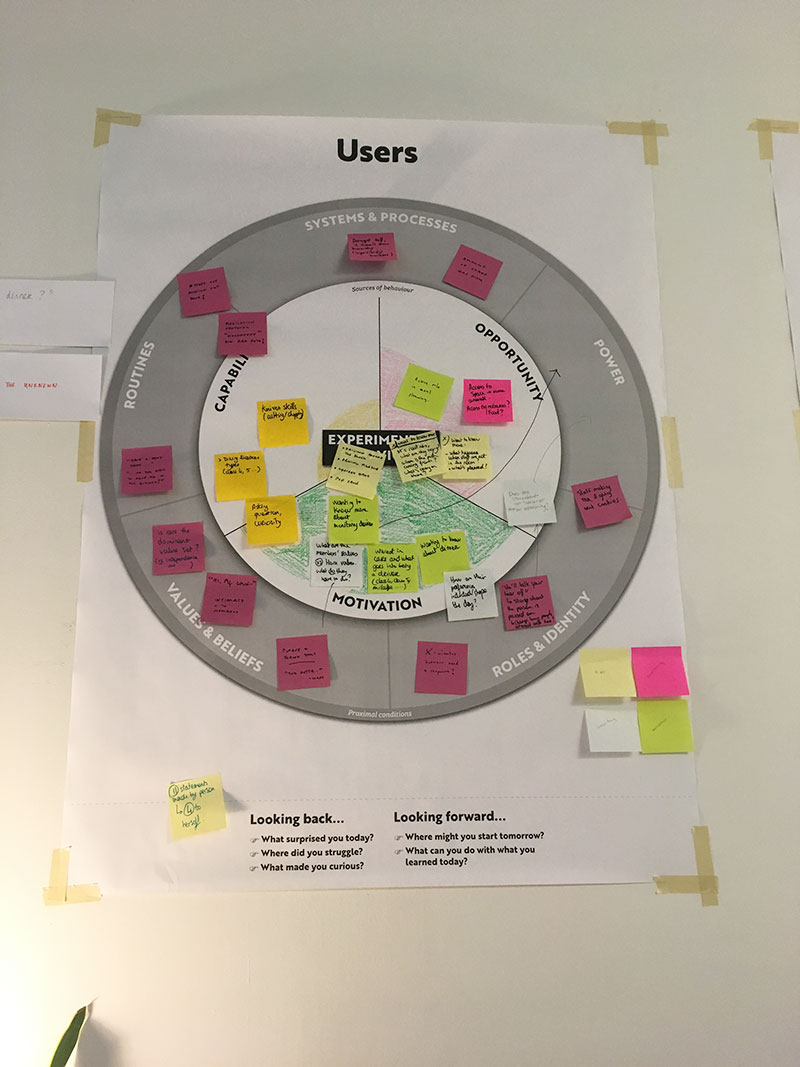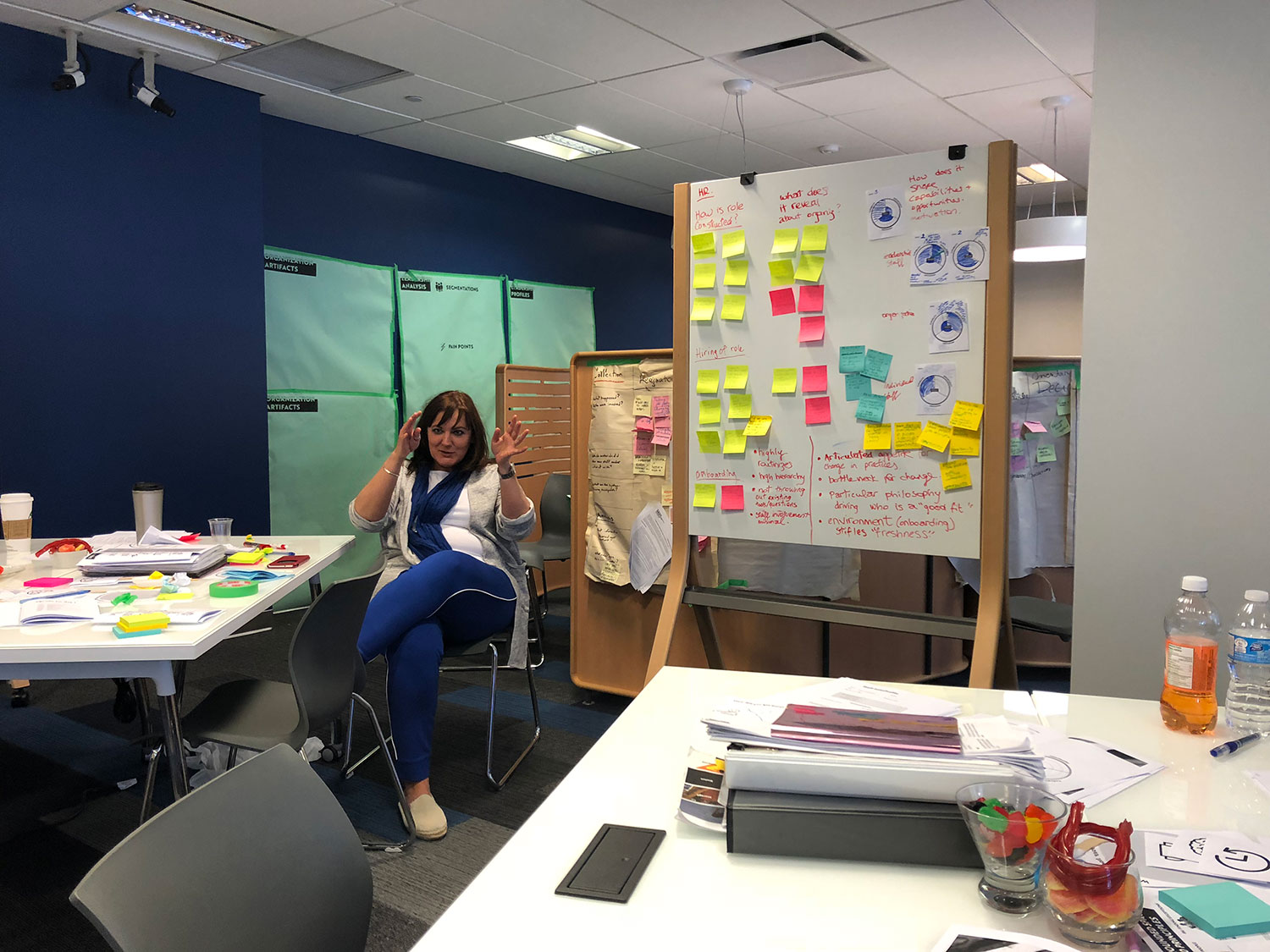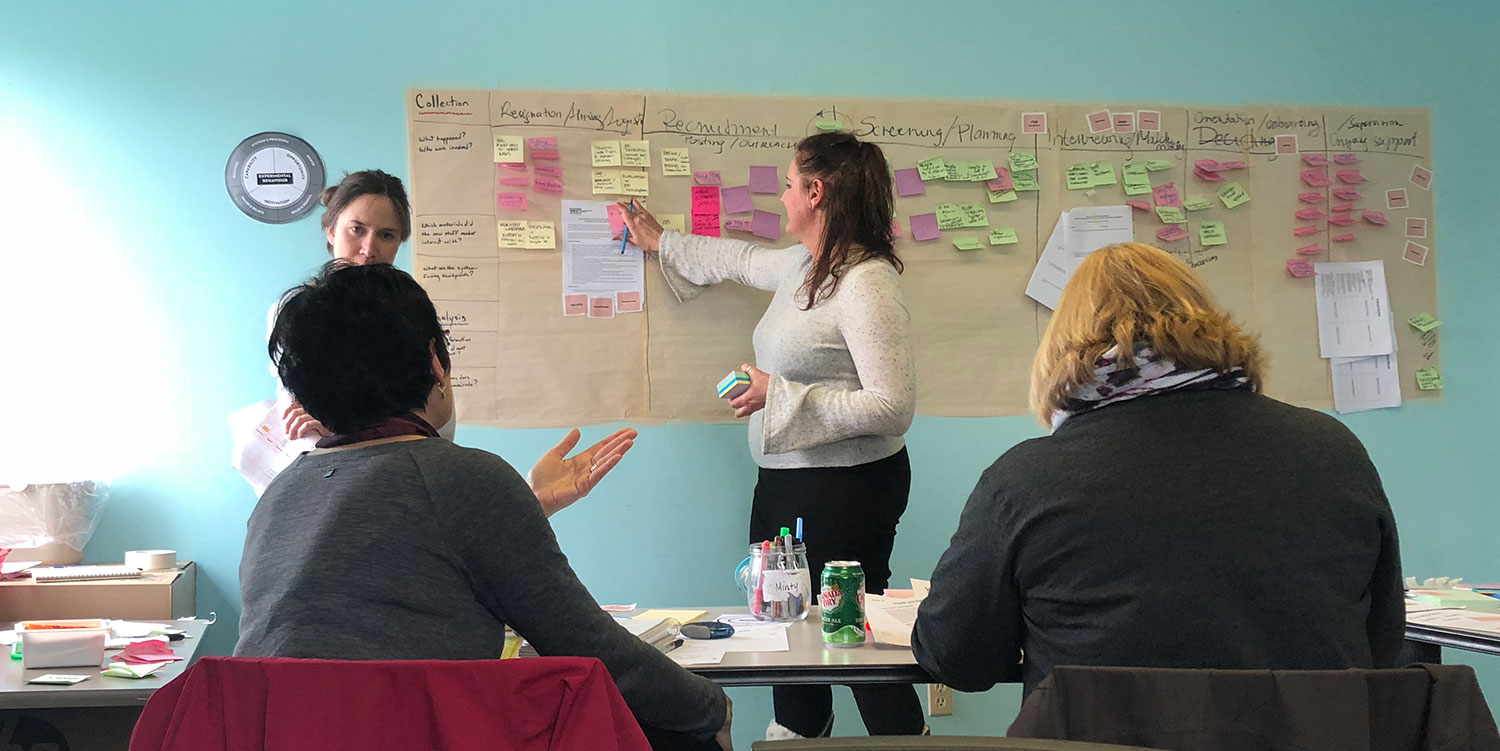Categories
Iterating the application of principles
As far back as December, IWF coaches wondered if the pendulum had swung too far away from the experience of end users. Grounded Space was born partly of a realization that frontline staff are key players in the development and delivery of new services. We had seen that it wasn’t enough to do design research with existing and potential service users, but that we also needed to understand staff’s world views and desired outcomes. In Grounded Space, staff are really a second user group. However, we felt the shift in our focus to staff had inadvertently silenced end users, and that did not sit well with our values.
We revisited our principles as an organization, and for Grounded Space. In January we sought to reflect on those principles with the members of Grounded Space. The result was an iteration of the “Deep Dive” research phase. The West NH crew researched the ground for experimentation in their Employment Services by dividing themselves into three streams: organization, staff, and service participant. Each stream spent their entire week focused on collecting data through that specific lens. Our service participant team spent time with existing and past service users, as well as those who has never used West NH’s employment services, or any at all. Come time for analysis, participants’ desired outcomes, pain points, and narratives brought focus.
Iterating Reflection
Another lesson that crept up on us, from the wilds of the Pacific, was about the challenge of being “embedded.” We were asking Embedded Researchers to lay bare the conditions for experimental behaviour – shaping factors like roles and identity, power and hierarchy, systems and processes, values & beliefs, and routines. Of course, part of being embedded, is being subject to many of the same conditions as your colleagues.
How could we explore conditions without reinforcing them, or feeling disciplined by them? How could we get outside the conditions enough to see them? Looking back, we would have liked to take more time to understand this with ERs before the research sprint. Instead we iterated our West NH Synthesis Sprint to include almost a full day of reflection on the experience of research, and of the role, three months into it. Our crew’s response to reflection activities is quite similar to the dominant mood on the west coast: it’s hard, and can feel like a waste of time when productivity isn’t normally defined in terms of generating insights and self-awareness. Perhaps we expect those things to hit us like a bolt of lighting, but our work is showing us reflection is a muscle that needs to be worked. Many West NH ERs seemed impatient and distracted that first day. They told us they wanted to jump right into analysis. We have more work to understand the pacing and intensity of reflection practices that provide some satisfaction to ERs and CCs.

Iterating playback

As we were planning our Synthesis Sprint week in Toronto, there were ripples of worry emanating from the West NH Embedded Researchers and Culture Curators. They sensed that their research had surfaced some experiences and perspectives that had the potential to bring discomfort. They could not imagine presenting that back in front of managers. Why had their colleagues entrusted them with such sensitive material? On the other side of the Rockies we were discovering that how we present information is at least as important as what we present. Playback sessions were particularly difficult for senior management who tended to have less anonymity in the process, due to there being fewer of them with more distinct duties. It was easy for managers to feel attacked or misunderstood. Some managers were able to illuminate this experience for us. They explained that their immediate reaction was emotional, and they felt on the spot because they were viewing it alongside everyone else. After the event they began to process the material, but in the moment, they were apt to feel blindsided.
It was just as important to Embedded Researchers that we get playbacks right. They were feeling vulnerable and exposed but they wanted to do justice to those they had spent time with over the research week. We decided to hold a sneak preview for some members of senior management most directly related to Employment Services. We wanted to invite our guests to join us in making sense of the data rather than simply presenting it to them – after all, managers are problem solvers! So we set up two design briefs around identified gaps. We assembled all the relevant pieces of data around them and generated ‘what ifs’ together with the senior managers. At this first “mini-playback” we only shared about five or ten percent of our data. The aim was not to “wow” but to gently invite. That felt funny for us as coaches: it’s not our usual jam. But, we’re not flashy consultants who need to impress with content; we’re coaches helping to facilitate a learning process, and that looks different.
The playback at West Neighbourhood House went smoothly, and it was only as we witnessed the Embedded Researchers visibly relax and start grinning that we realized how much that worry had been weighing on them. Next round we wonder how we can create the conditions for more trust building moments earlier int he process.

